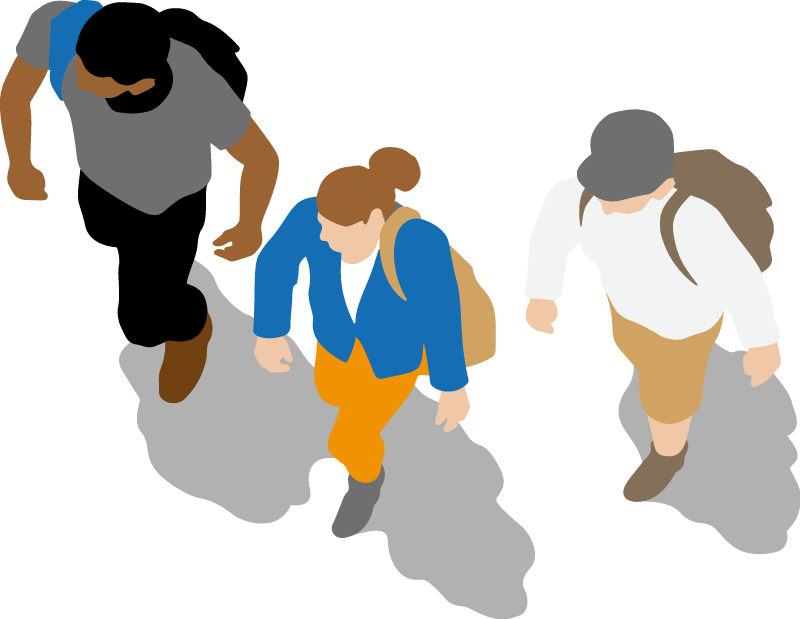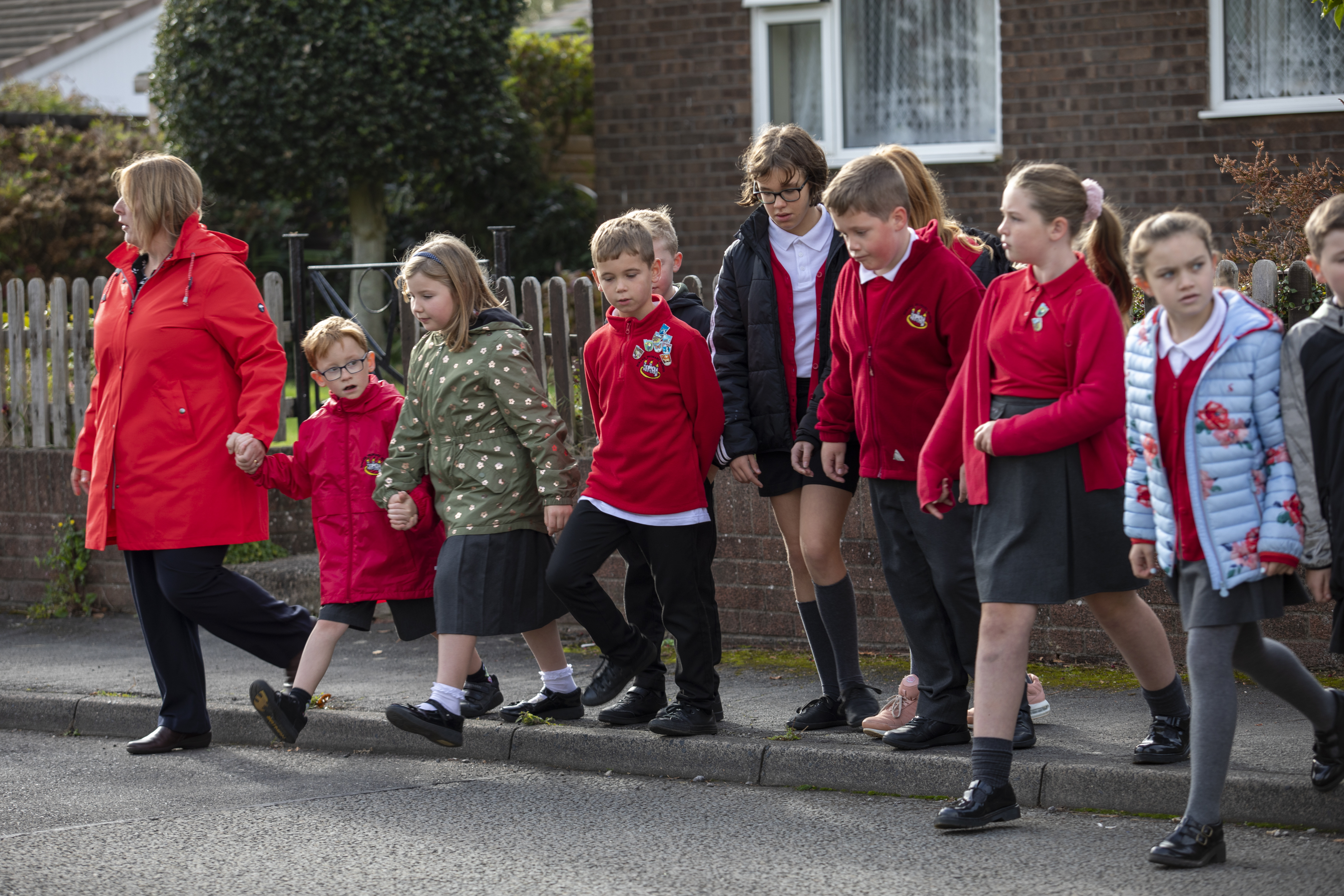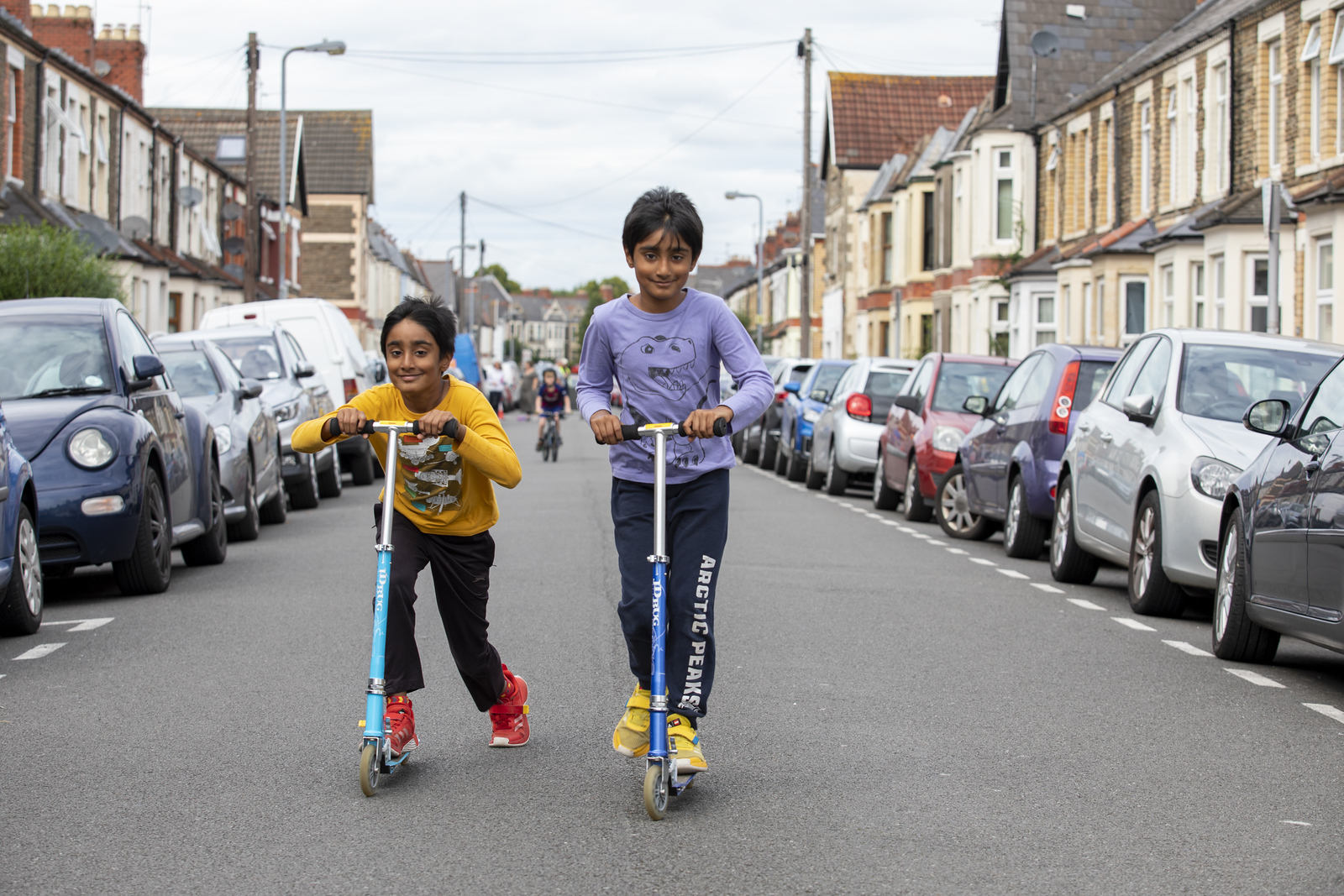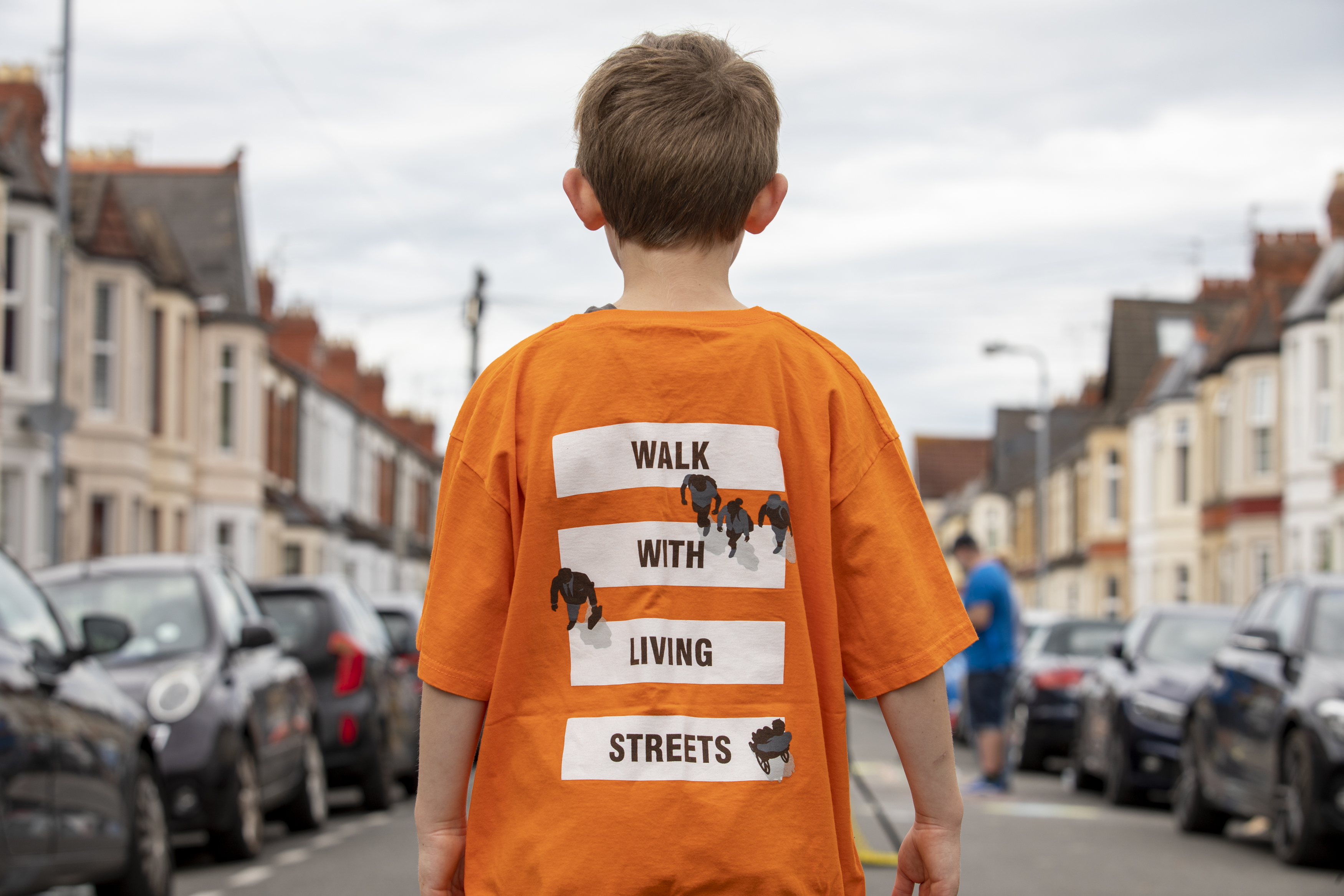Let's walk, wheel and cycle our way to a healthier Wales

Living Streets Cymru, Cycling UK and Sustrans Cymru are calling on the Welsh Government to ensure that walking, wheeling and cycling remain a priority in public investment. Ruth Billingham, our Head of Campaigns and Public Affairs, explains why.

Active travel is something that many of us do every day without a second thought. Our lives are busier than ever, and it can be all too tempting to jump in the car, but walking, wheeling or cycling for short journeys can have huge benefits to our mental and physical health – and can reduce the impact of climate change.
But, for various reasons, not enough people in Wales choose active travel on a regular basis and Living Streets Cymru, Cycling UK and Sustrans Cymru are calling on the Welsh Government to ensure that walking, wheeling and cycling remain a priority in public investment.
The Active Travel (Wales) Act was passed in 2013 with promises to make walking and cycling the natural choice for short, everyday journeys. Over ten years later, however, only one in three journeys in Wales are currently carried out by walking, cycling or public transport.

And despite increased spending, and a new wide-ranging delivery plan, the Welsh Government is a long way from achieving the step change in active travel intended through the Act. But where investment has been targeted, it has had a significant positive impact on local communities. For example, 170 primary schools in Wales are taking part in WOW – the walk to school challenge from Living Streets, thanks to support from Welsh Government. Over a year, almost three million journeys have been logged by over 42,000 primary school pupils, with a 54% (24.39 percentage point) increase in children walking, wheeling, cycling or scooting to school. This reduces congestion at the school gates, making streets safer, and benefits the physical and mental wellbeing of pupils too.
We need to look at what is working well and do more of it – the building blocks for change are in place, but change takes time. Now is not the time to take a step back.
Going forward, investment in active travel will be critical to the Welsh Government achieving its public health, economic growth and low carbon goals. With additional funding for Wales announced by the UK Government in October we believe the essential continued ring-fenced, targeted funding for active travel is now possible to support many key policy outcomes in Wales.
By prioritising green infrastructure projects, Wales can support a sustainable transition to a resilient, low carbon economy. Investment in walkable high streets and town centres can boost local economies – shoppers on foot can spend six times more than those travelling by car (The Pedestrian Pound, Living Streets, 2018).
And at a time of significant pressure on the health service, walking, wheeling and cycling are key to a healthier Wales. Investment in active travel can prevent ill health and reduce the burden on the NHS, for example in Scotland, the number of deaths averted by walking to work was worth around £600 million a year (The Pedestrian Pound, Living Streets, 2024).
Living Streets Cymru, Cycling UK and Sustrans Cymru have four key calls for a healthier, greener, fairer and more prosperous Wales:
1. Protect and increase active travel funding
We urge the Welsh Government to protect and, where possible, increase funding for active travel infrastructure and behaviour change programmes. Every investment in walking and cycling creates multiple returns, from reducing NHS costs to stimulating local economies. For example, every £1 invested in Living Streets’ walk to school programme delivers £5 in health, air quality, carbon and traffic reduction benefits.
2. Prioritise safe routes to schools and education
Safe routes to schools are crucial for children’s well-being and educational access – 22% of parents of children who do not currently walk to school said that safer roads would encourage them to walk to school more often (National Travel Survey, 2024). We call for continued dedicated funding and behaviour change programmes to ensure that walking and cycling routes to schools are expanded and maintained. This investment aligns with government education priorities, making active travel a feasible choice for parents, easing traffic congestion, and supporting children to get their recommended 60 minutes of physical activity every day.
3. Enhance links to public transport
At a time when the Welsh Government is already significantly funding and seeking more UK Government investment for public transport, it is essential to remember that most bus and train journeys begin with a walk or cycle. Active travel must connect seamlessly with public transport for a truly integrated transport network. By funding walking and cycling access to train stations, bus stops, and transport interchanges, and ensuring sufficient high quality cycle storage at these locations, the Welsh Government can reduce car dependency and increase public transport usage.
4. Prioritise road safety for walkers and cyclists
Safety is a major barrier to walking and cycling, particularly for more vulnerable road users. Investments in improvements such as better crossings, segregated cycle lanes and traffic-calming measures will encourage more people to walk or cycle. Focussing on road safety and adopting a Vision Zero approach to casualties will complement and enhance the gains seen following the recent change to a 20mph default speed limit in residential areas. Promised action on ending pavement parking is also critical to ensure our streets are safe for all, including vulnerable pedestrians.
Together with Cycling UK and Sustrans Cymru we will send this message to Ministers and Senedd members. We are holding walking meetings, events and contacting all those elected to show them why active travel investment should be central in plans for next year and beyond.
Please support Living Streets' work to create a healthier, greener Wales. We can only continue our vital campaigns in Wales with your backing. Join our movement for change today.


